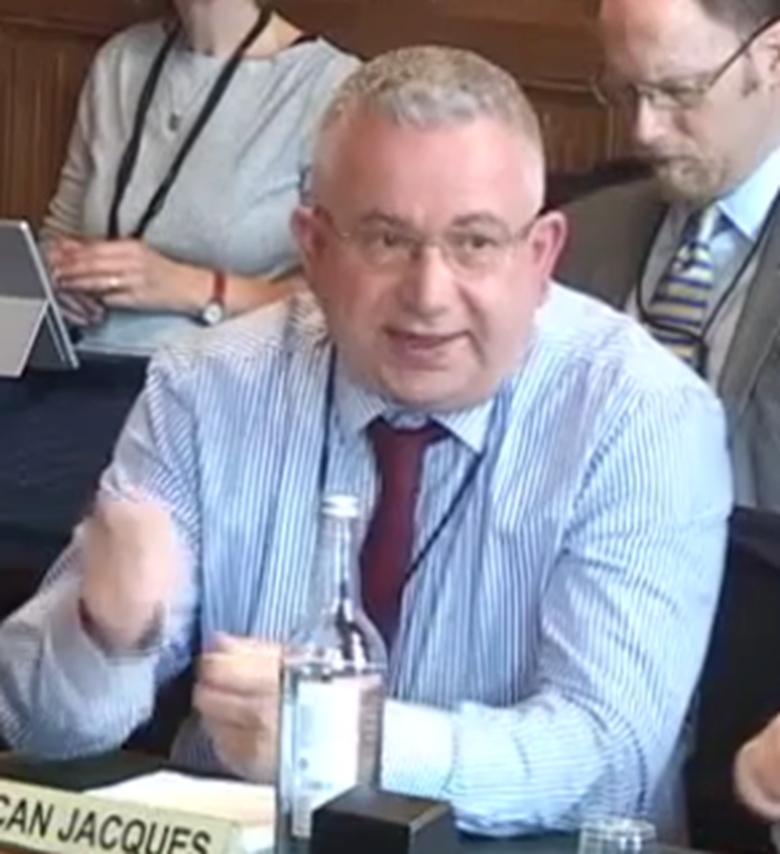Opportunity Areas accused of 'draining resources'
Joanne Parkes
Thursday, May 2, 2019
Opportunity Area leaders have passionately defended the £72m scheme's value - amid concerns that it may be sucking money from other disadvantaged areas.

Among the claimed benefits of the initiative - which targets 12 "social mobility coldspots" - are that it is helping to develop innovative practices that can be rolled out nationwide.
It also has a "convening power" to join-up numerous existing local education and employment schemes and boost their worth to young people, leaders told a roundtable hosted by the parliamentary education committee yesterday and attended by members of some of the Opportunity Area Partnership Boards.
The three-year programme, launched in October 2016 in six of the areas, was under scrutiny by committee chair Conservative MP Robert Halfon.
Halfon said that in addition to the £72m of Department for Education core funding, the areas were offered access to a wide range of initiatives, including the Strategic School Improvement Fund, the Teachers and Leadership Innovation Fund, as well as the National Citizen Service.
Halfon asked: "Some experts believe that there is a risk that the opportunity areas might be drawing disproportionate attention away from these other initiatives and actually this could drain the pot of additional resources available to other areas that are very disadvantaged, but do not quite make the cut as an opportunity area. What is your view about that?"
Bradford board member Duncan Jacques, said: "I think there's never enough resource to go around."
Committee member Ian Mearns, Labour MP for Gateshead, laughed: "But you're happy to get your cut."
"I'm not saying that at all, I'm saying the line has to be drawn somewhere," replied Jacques, who is also chief executive and executive principal of Exceed Academies Trust.
Halfon repeated his question around the multitude of schemes, adding: "Are you not just yet another scheme? Are you not sucking money away potentially from existing schemes and other areas of the country that need them?"
"We've got to look at legacy. Three years is not long to turn round a social mobility issue nationally," added Jacques.
"This is an opportunity to focus ideas, skills, look at innovative practices and see if there are any benefits to the rest of the country from what can be learned in opportunity areas."
Halfon probed further among other the rest of the panel: "But what extent do you believe that the department has a steer on the potential consequences of money being sucked away from all the other schemes and does it have systems in place to ensure this isn't happening?"
Dr Fiona McMillan, who chairs West Somerset's board, said: "There is a danger and there was a danger of too many initiatives being, for want of a better word, dumped on a particular problem."
She said that for small rural schools, this can be overwhelming, adding that this initiative was different, in that it offers a more coherent structure of a "one-stop shop".
"If you don't do that, you're probably not going to get the benefit of the other interventions," she continued.
McMillan gave the example of the Teach First programme, which she said was "great", but some schools have limited resources to support new teachers, risking them moving on from isolated areas, and not providing the desired continuity for pupils.
Teachers have been able to work together get the best out of Teach First, which "has made it a better scheme and a more useful scheme in an area where traditionally teachers are quite isolated".
For Graham Cowley, Blackpool's board chair, the area status has created a "common vision" and enabled it to "extract far more value" from a wider "confetti of initiatives".
He said the board was keen to ensure it was not yet another initiative "being done to Blackpool".
Cowley added: "And this convening power of the relatively small amount of government funding has produced massive value in my opinion.
"Obviously the measurement of that is a longer term issue.
"We're seeking proxy indicators that show movement towards an end goal and as we carry out more work we'll get an evidence base that indicate the right direction of travel."




